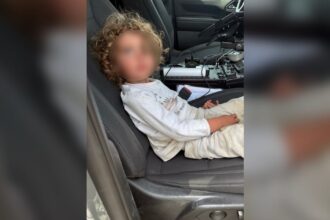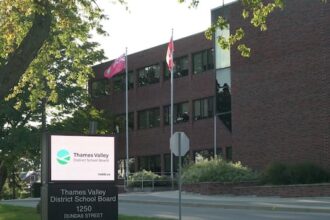In the heart of Manitoba’s Garden Valley School Division, an unprecedented gathering of educators took place last Friday, marking a pivotal moment in the region’s commitment to Truth and Reconciliation. Over 600 teachers and staff members assembled at the Access Event Centre in Morden for a day dedicated to deepening their understanding of Indigenous perspectives, histories, and the painful legacy of residential schools.
The full-day professional development session, coinciding with the National Day for Truth and Reconciliation observance, represented more than just mandatory training—it embodied a collective reckoning with Canada’s past and a commitment to its future.
“This isn’t simply about checking a box for curriculum requirements,” explained Superintendent Todd Monster. “Our goal is to equip every educator in our division with the knowledge, sensitivity, and resources needed to meaningfully incorporate Indigenous perspectives into their classrooms.”
The session featured a powerful keynote address from Kevin Lamoureux, a respected educator and Indigenous rights advocate who has worked extensively with the National Centre for Truth and Reconciliation. Lamoureux challenged attendees to move beyond surface-level acknowledgments toward genuine understanding and integration of Indigenous ways of knowing.
“Reconciliation isn’t a destination—it’s a journey that requires persistent effort and uncomfortable conversations,” Lamoureux told the assembled educators. “The truth must come before reconciliation can begin.”
What made this gathering particularly significant was its comprehensive approach. Rather than limiting Truth and Reconciliation education to history or social studies departments, the division emphasized that Indigenous perspectives belong in every subject area—from mathematics to physical education.
Teachers participated in breakout sessions exploring practical applications for their specific grade levels and subject areas. Science teachers discovered Indigenous approaches to environmental stewardship, while language arts instructors examined Indigenous storytelling traditions that could enrich their curriculum.
The division’s initiative aligns with Manitoba’s broader education priorities, which have increasingly emphasized the importance of Indigenous education following the Truth and Reconciliation Commission’s 94 Calls to Action released in 2015.
For many teachers, the impact was immediate and profound. “I’ve always wanted to incorporate Indigenous perspectives in my classroom but wasn’t sure where to start or if I had the right to tell these stories,” shared Claire Thiessen, a Grade 6 teacher. “Today gave me both resources and confidence to proceed respectfully.”
The division’s leadership has committed to ongoing support, including the development of an Indigenous education resource hub and continued professional development opportunities. This approach recognizes that meaningful change requires sustained effort rather than isolated events.
Educational consultant Linda Peters noted that the Garden Valley initiative represents a growing trend across Canadian school systems. “What we’re seeing in Manitoba mirrors efforts across the country to move beyond token acknowledgments toward substantial curriculum transformation,” she explained.
Critics might question whether such professional development sessions translate to meaningful classroom change. However, GVSD has implemented accountability measures including follow-up workshops, resource sharing platforms, and classroom implementation goals to ensure the day’s learning continues throughout the school year.
As educational institutions nationwide grapple with how to meaningfully respond to the Truth and Reconciliation Commission’s educational mandates, Garden Valley’s comprehensive approach may provide a template for others to follow. By involving every educator rather than delegating responsibility to a few specialists, the division signals that reconciliation is everyone’s responsibility.
As the sun set on a day of difficult but necessary conversations, the question lingering in educators’ minds wasn’t whether to incorporate Indigenous perspectives, but how to do so authentically and respectfully: In a nation still navigating the path from acknowledgment to action, can our classrooms become the transformative spaces where reconciliation takes root in the next generation?










